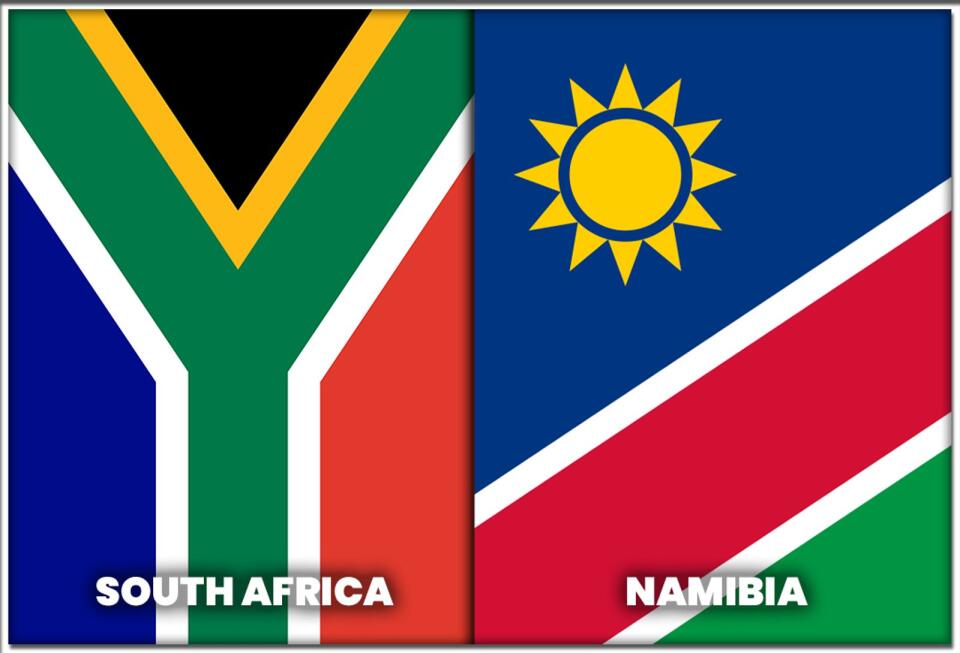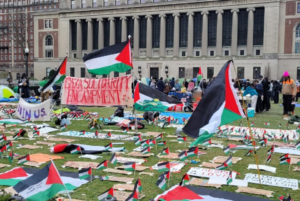Graphic: Timothy Alexander / African News Agency (ANA) – Notwithstanding the reputational damage of the Phala Phala saga on Ramaphosa’s aspirations for a second term as president of the African National Congress, I firmly believe that it did not negatively impact the mutual respect between South Africa and Namibia, the writer says.
By Professor Sethulego Matebesi
It is widely known that South Africa (SA) and Namibia have been enjoying cordial relations characterised by regular and increasing interaction at all levels. The bilateral co-operation between the two countries is largely historical, with South Africa heavily investing in key industries in Namibia.
Who would have thought that a scandal involving the president of one of these countries would come to raise questions about a diplomatic fallout?
The possible diplomatic fallout occurred after the former State Security Agency director-general Arthur Fraser laid criminal charges against President Cyril Ramaphosa for a robbery at his Phala Phala game farm in February 2020 that was not reported to the South African Police Service.
The Phala Phala saga has since become a political hotbed for Ramaphosa – from within the ranks of his own political party and the opposition.
At face value, it may seem that the tension and contradiction between South Africa and Namibia increased exponentially after three issues came to light. First, it emerged that the Namibian authorities had contacted the South African leaders regarding the theft.
Secondly was the revelation by the Namibian Police Force that they met the South African police following the arrest of one of the suspects connected to the theft.
Third, the Ministry of Justice and Correctional Services denied receiving a request for mutual legal assistance regarding a suspect arrested in Namibia.
But what effect does the Phala Phala saga hold on bilateral relations between South Africa and Namibia?
The distinct role of political trust in bilateral relations given the political mayhem, the Phala Phala saga has caused in South Africa, at no point was it evident that the scandal would affect the relations with Namibia.
That said, we need to debunk possible factors that prevented a diplomatic fallout between the two countries. While it is essential to highlight that the bilateral co-operation between the two countries – illustrated by the more than 60 signed agreements and memoranda of understanding – was among the foremost reasons for preventing a diplomatic fallout, other reasons prevailed.
While tensions and contradictions are a permanent feature of diplomatic relations and are deeply entrenched in governance discourses, at the heart of these uncertainties is how countries manage possible diplomatic fallouts.
Furthermore, although regional co-operation with the Southern African Development Countries (SADC) is fundamental to diplomatic co-operation, its overall objective highlights the value proposition for regional member states to “prevent, contain, and resolve inter-and intra-state conflict by peaceful means, including preventive diplomacy…”.
Let me hasten to state that it would be naïve to suggest that the existence of SADC, on its own, can encourage regional co-operation. For example, while SADC, as a regional economic bloc, not only strengthens member countries’ positions on the global political landscape and bargaining power on international issues, it is also political trust that functions as a prism for cultivating relationships.
The confidence that policymakers have in their judgements, the effectiveness of their efforts, and their capacity to implement these policies are primarily dependent on trust.
Thus, unlike in the past when South Africa was regarded as a dominant partner, relationships between southern African countries are more deeply engaged in relationship building than adversarial engagements. As a result, leaders of these countries have built trust and often support one another.
If this were not the case, many Southern African leaders, who support democratic governance systems, would have spoken out against, for example, the so-called Tinkhundla system – a form of governance based on traditional administrative subdivisions.
Notwithstanding the reputational damage of the Phala Phala saga on Ramaphosa’s aspirations for a second term as president of the African National Congress, I firmly believe that it did not negatively impact the mutual respect between South Africa and Namibia.
Matebesi is the head of the Department of Sociology and an associate professor at the University of the Free State.
This article was exclusively written for The African. To republish, see terms and conditions.




